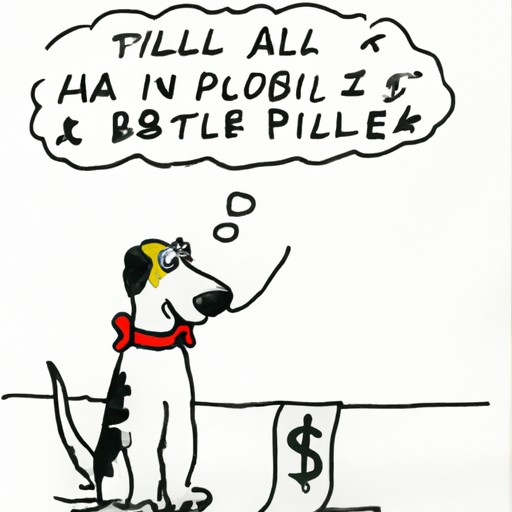1. Initial Purchase
The first thing you might think of when you consider the cost of a dog is the initial purchase price. This can vary wildly depending on whether you’re adopting from a shelter, buying from a reputable breeder, or purchasing from a pet store.
- Shelter Dogs: These dogs are usually the least expensive option, with adoption fees ranging from $50 to $300. But remember, you’re not just getting a dog; you’re also saving a life.
- Breeders: Buying from a reputable breeder can be more expensive, with prices ranging from $500 to over $3000, depending on the breed. But you’re paying for a dog that’s been responsibly bred and cared for, with a known health history.
- Pet Stores: These dogs can be just as expensive as breeder dogs, but often come from “puppy mills” where the dogs are bred without regard to their health or quality of life.
| Source | Price Range |
|---|---|
| Shelter | $50 – $300 |
| Breeder | $500 – $3000 |
| Pet Store | $500 – $3000 |
2. Healthcare Costs
The second major cost you’ll face is healthcare. Dogs, like humans, require regular check-ups and preventative care, not to mention the occasional emergency visit.
- Regular Vet Visits: These can cost anywhere from $50 to $200 per visit, depending on your location and the specific services provided.
- Vaccinations: Essential for keeping your dog healthy, these can cost anywhere from $20 to $150 per vaccine.
- Emergency Care: This is where costs can really add up. A single emergency visit can cost hundreds, if not thousands of dollars.
3. Food and Supplies
Just like humans, dogs need to eat and they also need a lot of supplies. This includes food, toys, beds, leashes, collars, and more. Expect to spend anywhere from $500 to $1000 per year on these essentials.
4. Training and Socialization
Training is essential for a well-behaved dog. Whether you hire a professional, take a class, or do it yourself, there are costs involved. Socialization is also key, and while some of this can be done for free, other aspects, like doggy daycare or playgroups, can also add up.
5. Time is Money
Last, but certainly not least, is the cost of your time. Dogs require a lot of it. From daily walks to playtime, training sessions to cuddle time, each moment with your dog is a moment you’re not spending on something else.
FAQs
1. Why are dogs from breeders so expensive?
Breeder dogs are often more expensive because of the care taken in breeding, raising, and caring for the puppies. This includes health testing, quality food, professional veterinary care, and more.
2. Can I save money by adopting from a shelter?
Absolutely! Adoption fees are usually much lower than the cost of a breeder or pet store dog. Plus, many of these dogs are already spayed/neutered, up-to-date on vaccinations, and microchipped.
3. How can I save money on dog care?
There are many ways to save money on dog care, from buying food in bulk to investing in pet health insurance. Prioritizing preventative care can also save you money in the long run.
4. Is it cheaper to have a small dog?
Generally, yes. Smaller dogs usually eat less, require fewer supplies, and often incur lower healthcare costs. But remember, every dog is an individual and costs can vary.
5. Why is emergency care so expensive?
Emergency veterinary care often requires immediate, intensive treatment and specialized equipment, both of which can be expensive. Having a pet emergency fund can help offset these costs.
Remember, while dogs can be expensive, the joy and companionship they bring to your life is priceless.



